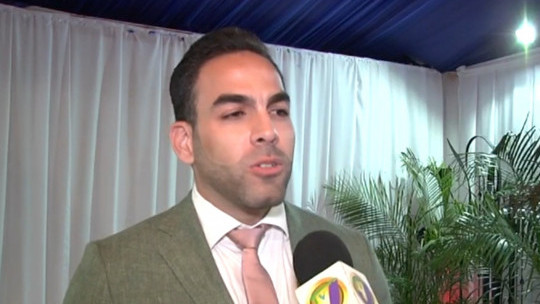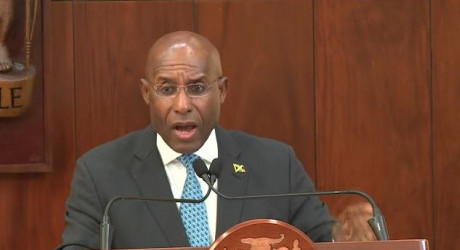.png)
00:00
00:00
00:00
CAPRI Lead Researcher Alexander Causwell
By Nakinskie Robinson
A report from the Caribbean Policy Research Institute (CAPRI) has concluded that land tenure and infrastructure regularisation should be the primary focus under the implementation of Zones of Special Operation (ZOSOs).
The report, which was released on June 4, titled Groundwork for Peace: Reorienting ZOSOs for Sustained Violence Reduction, assesses the use of ZOSOs as a crime fighting tool in 2017.
The study's conclusion differs from that of the government's focus on ZOSOs combined with social intervention programmes as strategic interventions aimed at reducing Jamaica's high rates of violent deaths and resocialisation.
Lead Researcher Alexander Causwell said based on the data analysed over 11 years, the majority of armed violence in Jamaica is concentrated around informal settlements.
He said informal communities - of which there are more than 700 in the country - serve as safe havens for armed criminal networks.
The solution, he suggested, is that these communities are regularised, as was recommended in the Natural Security Policy.
While land tenure regularisation is also planned for implementation under ZOSOs, Mr. Causwell said this does not appear to be a priority at this time.
Land tenure regularisation refers to public policies meant to recognise land rights and provide land tenure to dwellers.
Meanwhile, infrastructure regularisation targets the implementation and upgrading of the physical infrastructure of designated squatter communities such as the improved road works, drainage, waste water disposal and other basic amenities.
Mr. Causwell believes infrastructure upgrading needs to be done in a more comprehensive way.
"The informality of these communities means that they were built in a haphazard manner with irregular lanes and few access points. This irregular layout makes them harder to police, harder for security forces to patrol, and it gives a tactical edge to gangs. So the land tenure regularisation and infrastructure regularisation are the keys to integrating these communities, which are now marginalised in the mainstream society," he reasoned.


.jpg)



.jpg)



 All feeds
All feeds







